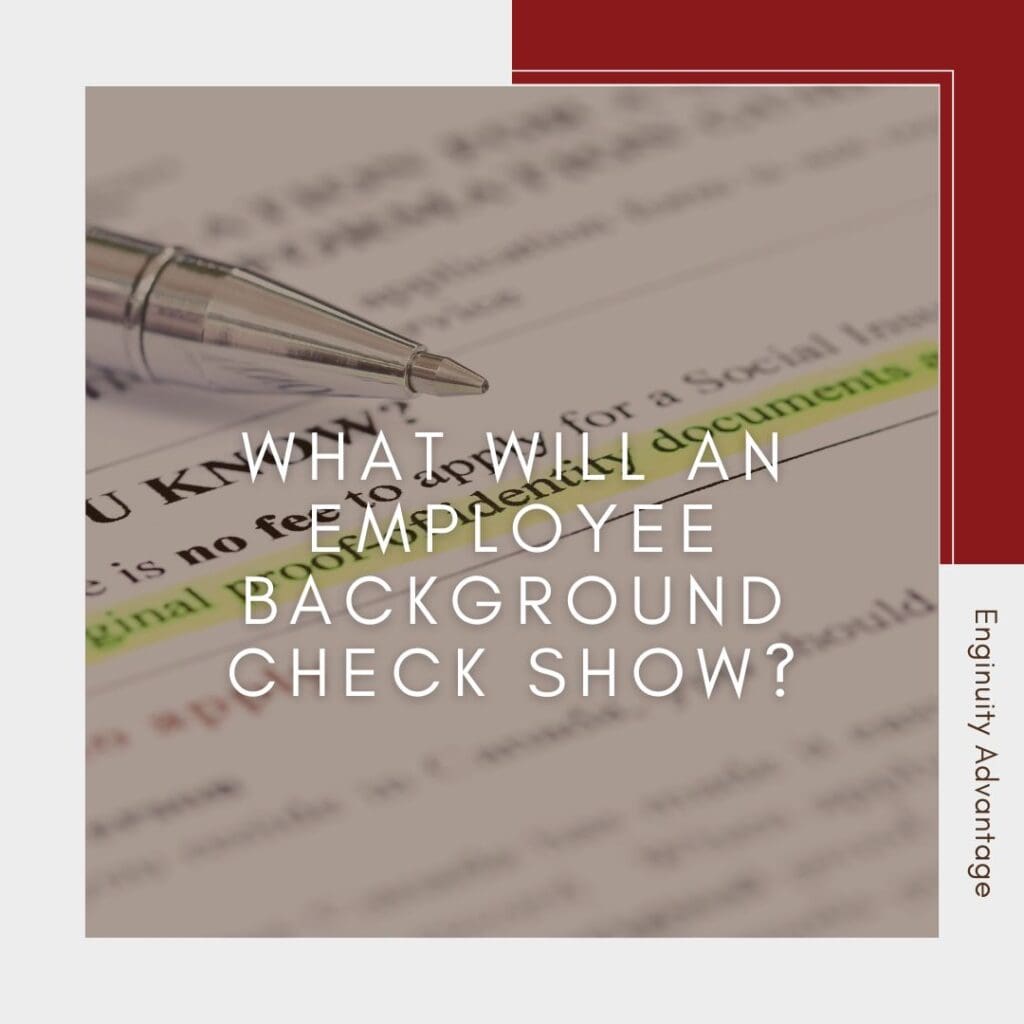What Will An Employee Background Check Show?

When it comes to hiring, one of the final and most crucial steps is conducting an employee background check. This process is not just a formality; it’s a vital part of ensuring that the candidate is not only qualified but also a safe and trustworthy addition to the team. Understanding what an employee background check entails can demystify the process for both employers and job seekers, ensuring transparency and preparedness on both ends.
The Scope of Employee Background Checks
Background checks can vary widely in terms of depth and scope, depending on the position in question, the company’s policies, and the regulations governing the industry. Generally, they aim to verify the information provided by the candidate and to uncover any potential red flags that might affect their job performance or the company’s integrity.
1. Identity and Social Security Verification
One of the primary steps in a background check is to confirm the candidate’s identity. This involves verifying the Social Security number to ensure it’s valid and matches the candidate’s name, which helps to prevent identity theft and ensures the candidate is legally eligible to work in the country.
2. Criminal Records Check
A central component of most background checks is a look into the candidate’s criminal history. This search can include national, state, and county-level databases to uncover any felony or misdemeanor convictions. The extent of this search can depend on the job’s requirements and the employer’s policies. It’s important to note that certain states and localities have “ban-the-box” laws that restrict inquiries into criminal history at the early stages of the application process.
3. Employment History Verification
Verifying a candidate’s employment history is crucial to confirm their experience and qualifications. This part of the background check looks into the accuracy of the employment dates, positions held, and reasons for leaving previous jobs provided by the candidate. It can also involve contacting former employers to get a sense of the candidate’s performance, reliability, and workplace conduct.
4. Education Verification
Given the ease with which educational credentials can be falsified, verifying a candidate’s educational background is a key step. This process confirms the institutions attended, degrees earned, and sometimes the dates of attendance and graduation. It ensures that the candidate possesses the qualifications they claim to have.
5. Credit History Check
For positions that involve financial responsibilities, a credit history check might be performed. This gives insight into the candidate’s financial stability and responsibility, which can be crucial for roles involving budget management or company finances. However, credit checks are regulated, and employers usually need consent from the candidate to conduct one.
6. License and Certification Verification
For roles that require professional licenses or certifications—such as legal, medical, or educational positions—verifying that these credentials are valid and in good standing is a critical step. This ensures that the candidate is fully qualified and legally permitted to perform the job duties.
7. Reference Checks
Contacting personal and professional references provides an opportunity to gain insights into the candidate’s skills, work ethic, and character. References can corroborate the information provided by the candidate and offer a more nuanced view of their capabilities and workplace demeanor.
Understanding the Impact
What Employers Gain
For employers, the background check is a tool for risk management. It helps to ensure the safety and security of the workplace, maintain compliance with industry regulations, and protect the company’s reputation. By verifying a candidate’s background, employers can make informed hiring decisions that align with their values and operational needs.
What Candidates Need to Know
For job seekers, understanding what a background check entails can help in preparing for the hiring process. It’s important to be transparent and honest in providing information, as discrepancies or omissions can raise concerns. Candidates should also be aware of their rights, including the right to dispute inaccurate information in a background report.
Navigating Challenges
Both employers and candidates may face challenges in the background check process. Employers must navigate legal requirements and ensure fairness and privacy, while candidates may need to address concerns or inaccuracies that arise. Open communication and a clear understanding of the process can help mitigate these challenges.
Wrapping Up: The Significance of Background Checks in the Hiring Process
Employee background checks serve as a critical checkpoint in the hiring process, offering a comprehensive look into a candidate’s history and qualifications. For employers, they provide a foundation for making informed, secure hiring decisions. For candidates, understanding the scope and purpose of these checks can demystify the process and aid in preparation. As the workforce continues to evolve, background checks remain a staple in ensuring the integrity and safety of the workplace, underscoring the importance of transparency and diligence from both parties involved.
Unlock Dream Careers & Elite Talent: Just One Click Away!


